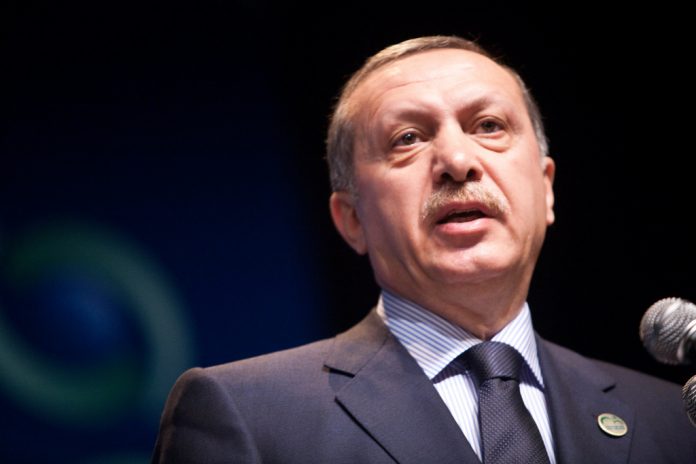As a friend of former Turkish prime minister Bülent Ecevit, I had a front seat in the stalls when the Turkish economy last collapsed in February 2001. Now I have a sense of déjà vu that the whole process is repeating itself, albeit for different reasons.
Bülent Ecevit was a decent man who tried to hold together a coalition government consisting of social democrats, conservatives and ultra-nationalists, but what brought both Ecevit and Turkey down was the issue of corruption. This began with a liquidity crisis in November 2000 and ended with a confrontation with President Ahmet Necdet Sezer at a meeting of the National Security Council on Monday, 19 February 2001.
The liberalisation of Turkey’s economy had led to a virtually deregulated banking sector, which in turn had led to massive indebtedness and the collapse of a number of private banks after their owners had siphoned off the assets. On Friday in a full page interview in the national daily Hürriyet I had raised the issue of corruption and criticized Ecevit for passing an amnesty law which reprieved thousands of murderers, embezzlers and rapists.
At the National Security Council meeting President Sezer also confronted Ecevit with the same issue . “Turkey’s primary problem is corruption, and you are failing to tackle it decisively. All of your ministers are accused of corruption. As soon as the investigations reach the political level, you block them.” President Sezer concluded: “You are sitting on mud.” Prime Minister Ecevit stormed out of the meeting and held an impromptu press conference, where he declared there was a serious crisis between him and the president.
Two days later the Turkish lira collapsed with an overnight lending rate of 4,000 percent. Kemal Derviş from the World Bank was appointed minister for the economy and put in charge of Turkey’s recovery programme. But the damage had been done. Turkish state banks and 20 private banks had been emptied of an estimated $50 bn by unscrupulous politicians and bank owners, and in November the following year the newly formed Justice and Development Party (AKP) came to power with a promise of clean governance.
Under the tutelage of the IMF and with Ali Babacan and Mehmet Ali Şimşek as ministers, the AKP continued the economic reform programme that Derviş had begun until Turkey was finally able to clear its debt with the IMF in 2013 after 19 stand-by arrangements. Now both Babacan and Şimşek have been sidelined and the Central Bank’s autonomy undermined in accordance with President Erdoğan’s plans to take greater control of the economy.
The markets have reacted with understandable dismay, especially since President Erdoğan’s son-in-law Berat Albayrak has been appointed finance minister. Nor did Albayrak’s presentation of Turkey’s “new economic model” convince investors and stop the lira’s plunge. However, in Thursday’s conference call, he ruled out capital controls which together with a brake on short selling has eased the pressure on the lira.
Albayrak also stated Turkey has no IMF plan, which is a face-saver for his father-in-law. An IMF spokesman has confirmed there is no indication Turkey is considering asking for financial assistance. As the spokesman explained: “the new administration will need to demonstrate a commitment to sound economic policies to promote macroeconomic stability and reduce imbalances, while ensuring full operational independence to the central bank.”
In view of President Erdogan’s idiosyncratic opposition to raising the interest rate in defence of the lira, this is not surprising.
Nevertheless, there are certain facts that cannot be ignored. There is an outflow of portfolio investment which is necessary to plug the hole in the current account deficit, in June calculated at $57.39 billion over the last year. From August last year until July foreign ownership of Turkish equities, government bonds and corporate debt has fallen from $92 billion to $53 billion, $4.7 billion of which has been since February. There is an accumulated corporate debt of $223 billion, about a quarter of Turkey’s GDP, $50 billion of which falls due in the next year, $20 billion by December. A number of Turkish conglomerates, among them Doğuş Holding and Yıldız Holding, already feel the heat and need to restructure their loans. Türk Telekom has been taken over by its creditors after Oger Telekom defaulted on a $4.75 billion debt.
In addition, the standoff with the U.S. over the continued detention of Pastor Andrew Brunson has added to Turkey’s woes, which is why Turkey is now making overtures to Germany and France and Qatar has promised a $15 billion investment. According to Albayrak, Turkey’s focus is now on direct investment. This is why it would be helpful to note Professor Nathan Jensen’s conclusion in his article on democratic governance and multinational corporations: that democratic regimes attract as much as 70 percent more FDI than authoritarian regimes.
Robert Ellis is a regular commentator on Turkish affairs in the Danish and international press.
This article first appeared in Sigma Insight Turkey: https://sigmaturkey.com/2018/08/17/a-turkish-collapse-revisited-turkeyeconomy/

